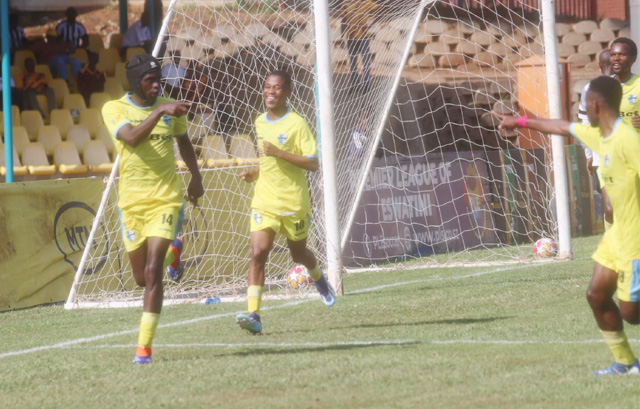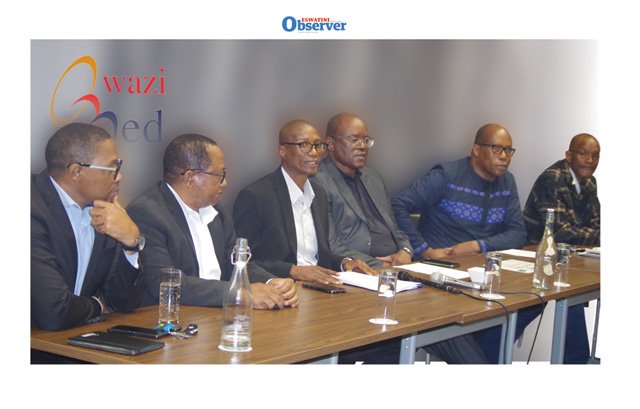By Ackel Zwane | 2018-07-06

IT is not so much the citizen who withholds his/her vote in a national election, but the one who sways the election process to his/her advantage in blatant breaking of the electoral law that is the cause of a sham election.
Already, certain sections of the electoral law are being violated in the very same fashion the last municipal election produced frauds that are currently crafting the destiny of our urban areas but those entrusted with enforcing it, courtesy of Elections and Boundaries Commission, deliberately look the other way.
The law succinctly prescribes that there must be proof of residence at registration, but the EBC has been inflating figures of registered voters in the country’s malls and population centres without requiring proof of residence.
requirement
This is despite that the commission is equipped with a hefty budget, big enough to compare with such giants as commercial banks or Swazi MTN that are able to, with all ease, require proof of residence before issuing loans or registering sim cards through the Vela programme. For such an important undertaking as a national election, the EBC is not able to enforce the requirement of this law and leaves it to the wolves to do as they please and hopes to clean the mess further down long after non-qualifying elements have infiltrated the electoral process.
The figures have now been inflated with non-qualifying elements registering to vote, all because there is no efficient system to prune out the frauds, as a result the EBC, in an announcement never heard in the history of an election the world over, claims 97 per cent voter registration! It is at these stages that an election loses its credibility and this is the area in which international election observers will look, they will audit the work of the EBC by employing the elections law as the benchmark to measure whether the commission indeed represented the aspirations of the Swazi people.
We were told early this month that 18 000 registered during the voter registration’s 12 days extension period, raising the figure to 544 310 eligible voters.
When the exercise initially ended on July 17, the EBC had registered 526 073 voters, which amounted to 87 per cent of the eligible voter population in the country. This, therefore, means 18 237 voters registered during the extension period. In total 253 932 men have registered and 290 378 women, also 18 686 of the people who registered are disabled.
Any election is by and for a people of that country as the law safeguards and anything outside that law means the election is no longer expected to produce outcomes wanted by the people who own it. An election is not for individuals or organisations but for the people and, therefore, cannot afford to have a surname that resonates with an individual or an organisation, be it a political party or not. This nation cannot, therefore, be measured by those who boycott the election, neither can it be judged by the frauds who hijack it.
verification
Says Section 13 of the law: In the case of registration at urban or industrial areas, the persons applying for registration as voters shall produce evidence or their Swazi citizenship or permanent residence. Nothing of this requirement was met at the registration points around the malls and shopping complexes throughout the country.
There were no imisumphe at the Bhunu Mall or the SNPF or President Centre in Manzini, who must be part of this process of initial verification to at least make sure this requirement of the law is met, for instance: says the law, a person shall not be registered as a voter in any inkhundla− (a) unless the person has actually resided in that inkhundla for a continuous period of at least three months immediately preceding the date of completion of the application; or (b) if the person did not reside as required under subsection (1), unless the person retained a home in that inkhundla for a continuous period of at least three months, immediately preceding the date of completion of the application.
Now this has opened floodgates to the elections mafia who are able to manipulate these loopholes by registering as many foreigners as possible, especially impoverished Mozambicans who freely roam Eswatini without requiring any papers to remain in the country.
Similarly, the Asian community has joined the bandwagon to push up the figures, not to mention the South Africans from porous borders in the north, south and west, who come in and out as they wished to cast a vote in exchange for a beer or two.
We also saw this with South Africa when elderly women from Eswatini were arrested and tried in a court of law in Phongola for registering to steal grant money from the neighbouring country, by fraudulently registering as South Africans. Eswatini can do the same to those who have registered not just to steal grant money but to steal the election of Eswatini and charge them, not with theft but with treason.
fraudulent
The daunting task now to resume is verification of the voters’ roll and the individual citizens do not possess the ability and resources to undertake the cumbersome task of identifying each individual voter in a particular area whether authentic or fraudulent. Even the EBC does not have the resources, skill and time to do this, otherwise they would have prevented the crises at registration.
But the law equips EBC with a very long and strong stick in Section 33: A person who− (a) knowingly makes a false statement in or in connection with an application to have that person’s name included in a register; (b) by the use of force or threats prevents or attempts to prevent a person from exercising that person’s right to register as a voter, commits an offence and is liable, on conviction, to a fine not exceeding twenty thousand Emalangeni or to imprisonment for a term not exceeding two years or both and shall, for a period of five years from the date of the expiration of the person’s term of imprisonment or the date of the payment of a fine, be disqualified from being registered as a voter or voting at an election. EBC, on the other hand, is worried about voter apathy, something that is not reflected as part of their mandate to worry about but to deliver a clean election.
canvassing
As the stage for campaigning nears, already goodfellas started long time ago campaigning outside this window period, while the EBC watched. This is despite the law providing that people are not allowed to undertake philanthropic activities that they did not undertake around this time last year. So many of them are shining in the newspapers as Good Samaritans, while we know very well that they are in actual fact canvassing for votes or blatantly campaigning by taking advantage of the dozing EBC (ELECTIONS ACT ACT No.10 of 2013 from 39-43).
The same hounds will return to chart our destiny and load it upon all of us all because we opted to boycott an election that would have otherwise been assisted with the help of a vibrant civil society and vigilance among citizens.
No one can change things, especially if the mammoth task of leadership and decision-making is left for frauds to recycle themselves over and over again, while we stand beside and look.
Those who boycott the elections have done it because they have chosen to and those who participate is because they want to change things for the better for themselves and for posterity, otherwise one day we shall find Eswatini in the hands of Mzuthini’s guests.
share story
Post Your Comments Below

Sisonkhe FC ……........….. (0)2
Mpendulo 55th, Thab...
Social media users have reacted with shock and sorrow to the death of former Mhlume Unite...
Health officials have reported a significant decrease in new HIV infections among men, in...

THE recent turn of events at SwaziMed has underscored deep-rooted governance challenges that thre...
All material © Swazi Observer. Material may not be published or reproduced in any form without prior written permission.
Design by Real Image Internet